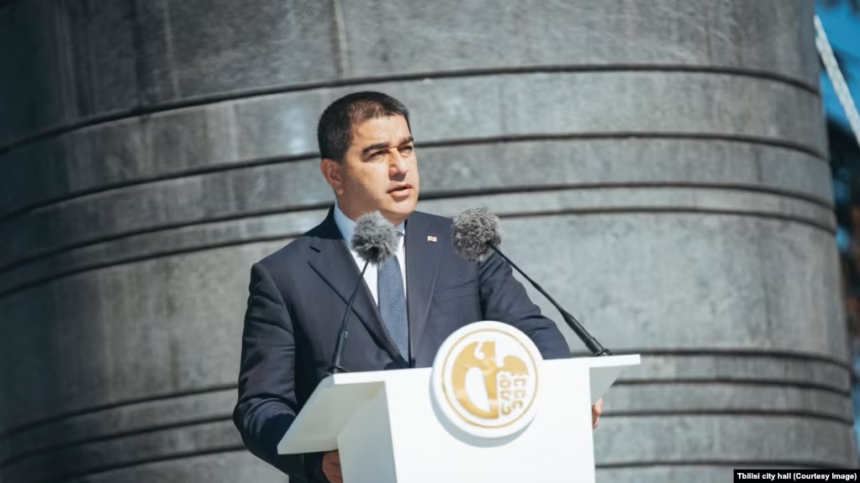Georgia’s ruling party, Georgian Dream, has formally requested the Constitutional Court to ban the country’s three largest pro-Western opposition parties, citing what it claims are threats to the constitutional order, according to senior party official Shalva Papaushvili.
Papaushvili stated that these parties “practically and consistently deny both the internal and external political legitimacy of the current government and the ruling Georgian Dream party, and thus its constitutional authority.”
The three opposition parties targeted are: Coalition for Change, United National Movement, and Strong Georgia-Lelo bloc, which Papaushvili described as a “real threat to the constitutional order.”
“Our request includes evidence that these political parties are guided by anti-constitutional objectives,” Papaushvili said, noting that the decision also considers the size and influence of these parties. Smaller allied parties have not been included at this stage, though this could change in the future.
Strong Georgia-Lelo leader Irakli Kupradze condemned the move, calling it “a decisive blow to democracy” and pledging that his party will resist the ban.
Georgia, an EU candidate country, has seen worsening relations with the bloc since passing laws last year targeting the LGBT community and regulating foreign agents, a trend critics see as pro-Russian policy shifts. Tensions escalated further after parliamentary elections in October 2024, when Georgian Dream retained power and suspended EU accession talks.
Protests in Tbilisi have continued daily since the elections, intensifying after Prime Minister Irakli Kobakhidze announced the suspension of EU accession negotiations. Authorities have arrested several senior opposition figures and increased detentions of anti-government protestors.
While Georgian Dream claims it still seeks EU membership, it emphasizes adherence to traditional Orthodox Christian values and maintaining peaceful relations with Russia.
Billionaire founder of Georgian Dream, former Prime Minister Bidzina Ivanishvili, has been sanctioned by the US for allegedly undermining democracy. Key party figures have argued that the opposition’s connections to former President Mikheil Saakashvili, currently serving a prison sentence until 2034, justify the ban.
Two of the three opposition parties have criticized Saakashvili, who led Georgia as a pro-Western reformer from 2003 to 2012. Public opinion remains divided: some praise him for reforms and EU/NATO integration efforts, while others view him as authoritarian and partly responsible for the 2008 Russo-Georgian war.







